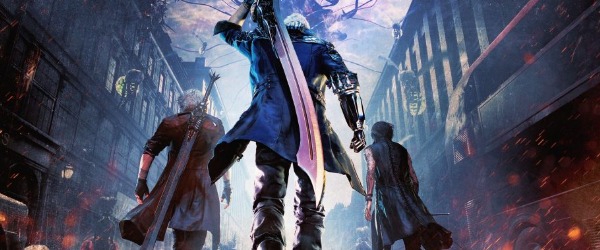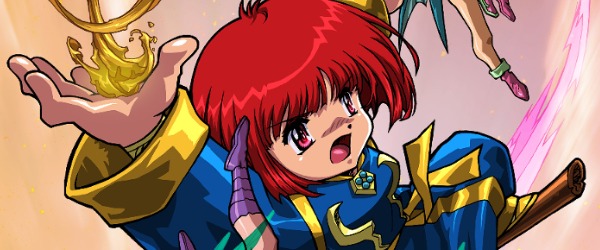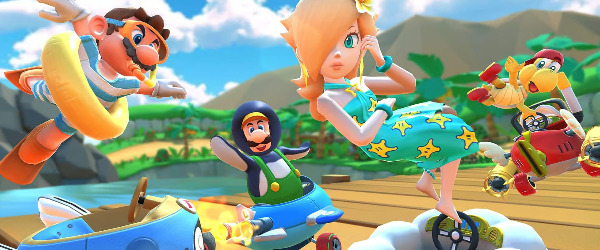
History of Final Fantasy: Grinding Down the Days (Final Fantasy II) - Article
by Taneli Palola , posted on 08 September 2016 / 9,384 ViewsFollowing the success of Final Fantasy Squaresoft immediately greenlit a sequel to be developed by the same team, led again by Hironobu Sakaguchi. The core of the development team remained largely the same from the first game, with Uematsu, Amano, Kenji Tarada and Nasir Gebelli all retaining their roles from the first game.
However, instead of just repeating what they did with the first game to cash in on its success, Sakaguchi decided to create a very different game with a new world, characters, story, and gameplay elements. In fact, there are very few, if any allusions at all to the first game to be found in Final Fantasy II. Later games in the series usually had some small nods to past titles, but here they aren't to be found.
Experimenting With the Formula: Final Fantasy II

The story of Final Fantasy II is a much darker affair than the first game. An evil empire is constantly spreading its influence over the world and the main characters are swept up in the conflict when their home town is attacked.
Outside of some recurring elements and names, the two games have very little in common. It was clear, even at this early point in the franchise's history, that the key people behind Final Fantasy were keen to experiment with new entries in the series, something that would become one of the series' most important hallmarks in the future.
Final Fantasy II was first released on December 17th 1988 in Japan, just one day before it would have been a full year since the release of the first Final Fantasy. Unlike the first game, the second game never made its way to the west in its original form. It would take almost 15 years for the game to finally be released outside of Japan on the original PlayStation as part of the Final Fantasy Origins collection.
Final Fantasy II was designed to have a much stronger emphasis on story and characters compared to the first title, and as a result many aspects of the first game had to be changed or removed entirely. It was the first game in the series that featured a main cast of characters with predetermined names and histories. In addition, unlike in the first game where the player could choose the classes of the characters at the start of the game, in Final Fantasy II the characters grow based on how they are used in battle over the course of the game.

This was one of the more interesting additions to the game, as it completely removed the traditional leveling up system found in its predecessor. Instead, for example, a character who constantly used magic would see an increase in his or her MP and other magic centered stats. Unfortunately, this new system wasn't without its flaws and turned out to be quite easy to abuse.
The reason for this is mainly due to how characters gain certain stats. Most famously, in order to increase HP for a character they need to take damage from attacks. This led to players realizing they could grind the stat by simply attacking their own characters instead of relying on enemies to do it. Accordingly, and with only a little patience, it was possible to significantly improve your characters in a single battle.
Final Fantasy II also introduced certain elements to the series that would eventually become franchise staples. These included the very first appearance of chocobos and the first time a game in the series included a character called Cid. Naturally, with the first appearance of the chocobos came another recurring element, namely the Chocobo Theme music composed by Nobuo Uematsu. Final Fantasy II also marked the debut of Leviathan, and even the ultima spell and dragoons.
The Best Part
The music once again stands out, but I also like the notably darker tone of the game compared to the first one. The story deals with quite a few surprisingly dark themes for its time, like the horrors of war and genocide. Later games in the series would go on to explore many similar elements in much greater detail, but Final Fantasy II was the first one that actually broached them.
The Worst Part
The leveling system. I know I've already talked about this, but it really is the main reason why Final Fantasy II isn't a very enjoyable experience. There are other things that don't hold up all that well either, but this is the most serious flaw in a game that has far too many problems to begin with.
Does Final Fantasy II Still Hold Up?
No, perhaps even less so than the first game. Almost every aspect of the gameplay is an exercise in frustration. It's worth a single playthrough to see where many of the most important recurring elements of the series started out and just how different it really is from the rest of the series, but that's about it.
The story and characters are notably stronger compared to the first game, but many of the new gameplay elements tend not to fare so well. The new leveling up system was, more than anything, an interesting experiment that just falls apart upon closer inspection.
As an idea it is very unique and certainly deserves to be acknowledged as a brave endeavour. Unfortunately, the way it works in-game makes for a rather uneven and tedious RPG experience, often forcing players to spend vast amounts of time improving character attributes.

Still, despite the Final Fantasy II's shortcomings, its story and characters are enough to carry through at least one playthrough. Even the leveling system, with all its faults, should manage to hold your attention for a decent amount of time, if only because of how different from just about every other video game leveling system it is.
Final Fantasy II also features an interesting conversation system where you need to 'learn' certain phrases or words from NPCs and then bring those memorized words to other characters to open up new conversation possibilities. Of the newly introduced elements in the game, this one is probably the most successful in terms of execution.
If you are interested in playing the game then I once again recommend the PSP version, as it is pretty much the most complete version of Final Fantasy II and is still fairly widely available. I hear the GBA version is also good, although I haven't played it myself.
Final Fantasy II has some positive aspects, from the dark storyline, to some interesting characters, and a very good soundtrack, but ultimately it's just not a very good game. In fact, it may just be the worst out of all of the mainline Final Fantasy games.
Fun Fact

Although the original Famicom version was never released in the west, an English version of the game was briefly in development under the title Final Fantasy II: Dark Shadows Over Palakia as a result of the success of the first Final Fantasy in North America. The release of the SNES, and the game being nearly three years old, meant that this localization was ultimately cancelled.
Next time we will cover the birth of one of the series' most enduring gameplay elements in Final Fantasy III. Until then, thanks for reading.
Sources:
-Wikia
-Weekly Famitsu
More Articles
I always thought FF2 was under appreciated. Its leveling system is flawed but it has by far the most interesting story of the NES games, and the best soundtrack of the three.
the road to FFVII is going to be a long wait.
I played the PS1 version, and I want to play the GBA because it has more content :)
FF2 is like a lot of first sequels for game series that began in the 1980s in that they wanted to be different from the original but the execution of the ideas fell flat somewhat. See also: Super Mario Bros 2, Zelda II, Ultima 2, Castlevania 2, and then compare the way the subsequent games after then returned to the game mechanics of the original titles.
It should also be noted that FF2's lead designer, Akitoshi Kawazu, went on to create the SaGa series, where he was able to implement the ideas started in FF2 more successfully. SaGa Frontier on PS1 is quite well done. He was also a design lead on FFXII alongside Yasumi Matsuno.
I never saw 10 as polarizing, it seems to be almost universally loved. 12 was polarizing, and I personally loved 12, it's second only to 7 as my favorite game. I'd even call 7 more polarizing than 10. 7 upset a lot of older fans who liked castles, black mages, and Amano's character designs over Nomura's more anime-styled art, that's why Square made 9.






















